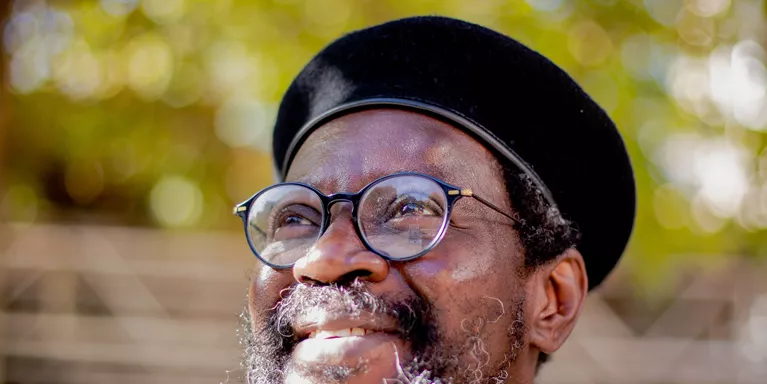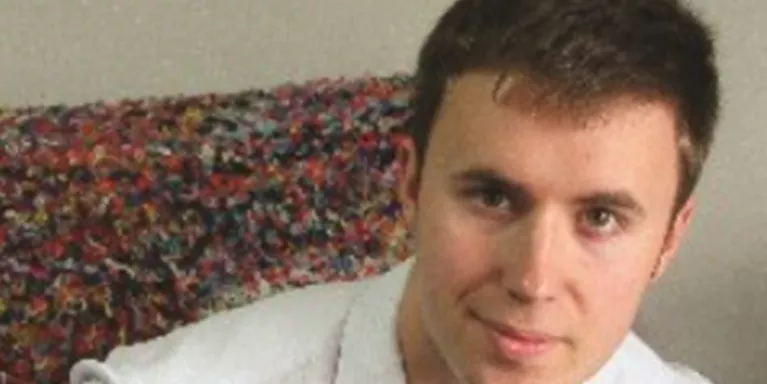Self care for schizoaffective disorder
Claudia shares what living with schizoaffective disorder is like, and explains the self-help techniques she's found that work for her.
Self care is something we deliberately do to take care of our mental health. I have been diagnosed with schizoaffective disorder, which is an illness similar to schizophrenia. I experience psychotic symptoms, delusions and hallucinations when relapsing, and sometimes live with episodes of depression, but for some this diagnosis can include bipolar disorder. When I am unwell I think the television is sending me messages or speaking about me, but this and the relapses are getting less and less frequent since having a year of therapy.
I believe that taking my medication regularly is an extremely important part of my self care, but there are so many other things that also help me remain well. I will go onto mention a few, but first I would like to state that self care is different for everyone depending on their own specific needs. Everyone will have their own individual things that help them. However, what helps me may also be useful.
"I know my own illness better than anyone else."
A really important area of self care for me is to know what I can take on. What I can manage and what I really cannot. I think I am learning to be more “selfish” and not so embarrassed or ashamed about what I cannot take on board. I have chosen to look after my mental wellbeing instead and be clear about my own limits. I remember that I know my own illness better than anyone else. I also find it important to know when to say No. instead of wearing myself out too thin. I care less and less about what people think of me if I turn down a task or proposition to rest and take care of myself instead.
When something is bothering me, I usually find it helpful to talk about it, with friends before it gets too overwhelming. I would say talking helps a bunch, to put things into perspective and get things off my chest. I don’t feel good bottling up my feelings and letting things play in my mind. It helps to have a good support system and a great circle of friends or family members who I can confide in. I mentioned that talking therapy helped me, also doing CBT therapy and courses and sometimes also talking to the Samaritans.
"At times I feel low and don’t want to go out."
I try to remember my friends and to socialise. At times I feel low and don’t want to go out. I have no motivation and usually when depressed just want to isolate myself from the world. Having a friend helps, just to get me out the house. If I find going out to a coffee shop is too difficult at the time my friends will visit me or I will meet at their house for a cup of tea or hot chocolate and a catch up. Just seeing a friendly face and having some good company can bring me out of myself.
Exercise like going to the gym and on the treadmill is quite hard for me because I often lack motivation and get quite anxious about being around strangers in the gym in a confined space. Instead, a walk in nature usually helps to calm my mood. Being in nature and seeing the open space makes me feel free. Taking in the scenery and the oxygen into my lungs and the scent of the green grass and trees is always so therapeutic. I find walking is a great form of exercise and a walk in the park even in autumn with its array of golden hues and stimuli makes me feel like I am not exercising at all.
"Just seeing a friendly face and having some good company can bring me out of myself."
I try to incorporate relaxation into my day, but relaxation can be different for everyone. Personally, I like to use visualisation as a form of guided mediation. I also like to listen to soothing sounds in my headphones, such as waves crashing at sea, thunderstorms and sounds of heavy rain fall, spa music, and the sound of pipes and singing bowls (which are my favourite). I burn incense sticks and scented candles, pray, and do yoga before bed as they put me in a relaxed mood and help me wind down. Some people find that a hot cup of tea and a reading a good book, listening to music, chilling out watching YouTube videos or watching a good movie relaxes them.
I feel that getting plenty of sleep keeps me well mentally. If am doing too much and generally over doing it getting a good adequate amount of sleep helps me to think clearly and does not make me feel so low. I suffered from insomnia for a long time as I was highly stressed and anxious. Lack of sleep made the anxiety and my mood worse. Relaxation and meditation helped after a while amongst talking therapy to bring my sleep back. Sometimes medication can also help.
"I have identified what my triggers are."
The reason why I find it imperative to incorporate relaxation into my day is that it improves my confidence, my mood, my thinking and my sleep. It eases my worries as when I am relaxed I feel free able to think clearly and be my natural true self. I would say that the best thing for me is that I have identified what my triggers are and try to keep toxic things out of my life. Using the self help tips that I have mentioned usually helps.


Information and support
When you’re living with a mental health problem, or supporting someone who is, having access to the right information - about a condition, treatment options, or practical issues - is vital. Visit our information pages to find out more.
Share your story with others
Blogs and stories can show that people with mental health problems are cared about, understood and listened to. We can use it to challenge the status quo and change attitudes.

















